Our increasingly digital world has made mastering SEO for higher education institutions vital to attract and retain students. The higher education competitive landscape has never been more fierce, and robust higher education SEO strategies for colleges and universities are key to standing out in search engine results.
Unlike most institutions, universities have an inherent advantage in SEO due to their credibility and authoritative content. By showcasing the wealth of high-quality content they regularly produce, these institutions can boost their visibility and reach and engage the right audience.
Mastering SEO for higher education is never going to be easy, but by closely following this guide, schools, colleges, and universities will enhance their online presence and drive student enrollment.
Why is Search Engine Marketing for Higher Education Important?
Understanding and implementing SEO for higher education is the primary method of reaching and engaging prospective students online. Universities often have broad target audiences that can include high school students and their parents, as well as adult learners looking for advanced degrees. Regardless, universities must identify their target audience accurately. Only by tailoring marketing efforts to these groups can higher education institutions ensure the right people find them online.
SEO essentially acts as a digital megaphone for universities and colleges, amplifying their digital visibility and helping them connect effectively with target audiences. SEO is crucial, not just for attracting students, but for building a strong global reputation and engaging with the academic community. But what are the relevant SEO steps for universities, colleges and other educational institutions?
1. Run a Technical SEO Audit
The first step for any college, university, or other third level institution is to conduct a comprehensive technical SEO audit. This is the foundation of any successful SEO strategy for colleges and universities, and will help identify and resolve issues that can impede a website’s performance on search engine result pages (SERPs).
Check for Desktop & Mobile Performance
Make sure the website performs well on both desktop and mobile devices. Mobile optimization is particularly important given the fact that more users access information via smartphones and tablets. Given the age demographic of university and college students, high-quality mobile optimization for colleges and universities is a must.
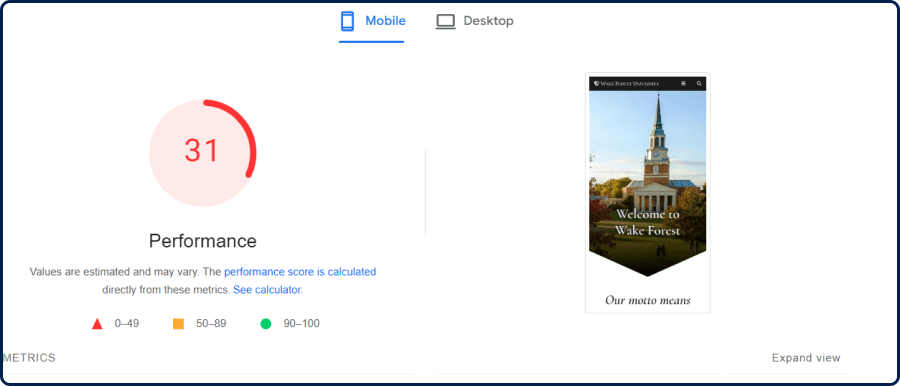
Check for Schema Markup
Schema markup is a powerful tool that helps search engines understand the content on a website. Implement schema markup to improve the changes of the university appearing in rich snippets, enhancing visibility and click-through rates.
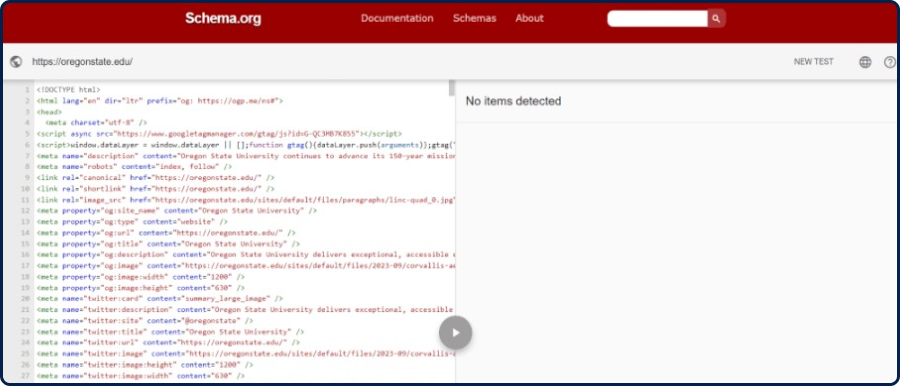
Check for Broken Links
Broken links harm a website’s SEO and user experience. Regularly check for and fix broken links to ensure that users and search engines can navigate the site free of issues, and that the site doesn’t lose integrity.
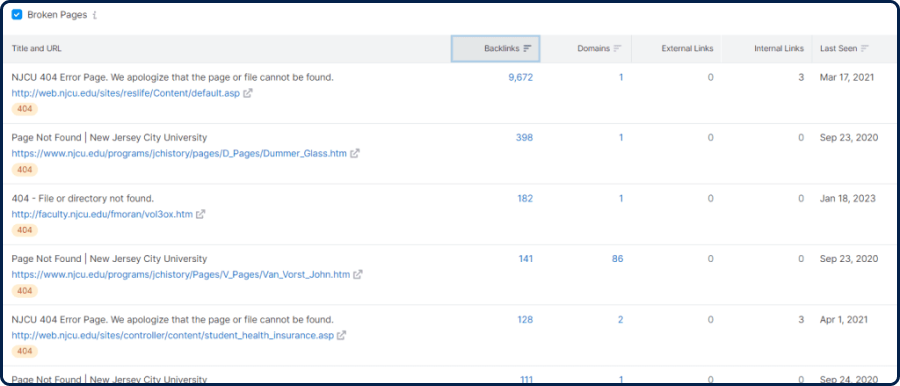
2. Focus on Local SEO (GMB, Wikipedia Page)
Local SEO is key for higher education institutions, as many students decide to study close to home. Create and optimize a Google My Business (GMB) profile to significantly boost local search visibility. Maintain profiles in other directories and keep Wikipedia pages updates to enhance credibility and provide essential information to prospective students.
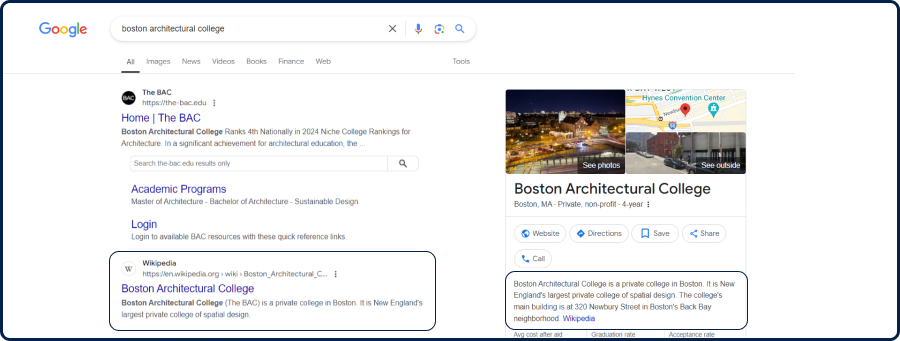
3. Have All Your Tags in Order (Meta Title, Description, Images)
Properly optimize meta tags, descriptions, and images. Meta titles and descriptions must be engaging, compelling, and include relevant keywords.
Properly optimizing meta tags, descriptions, and images is essential for SEO. Meta titles and descriptions should be compelling and include relevant keywords such as “Application form”, “Enrollment services”, or “Campus map”, alongside having your full and colloquial university/college names and location. Additionally, alt text for images must be descriptive and keyword-rich to aid in image search optimization.
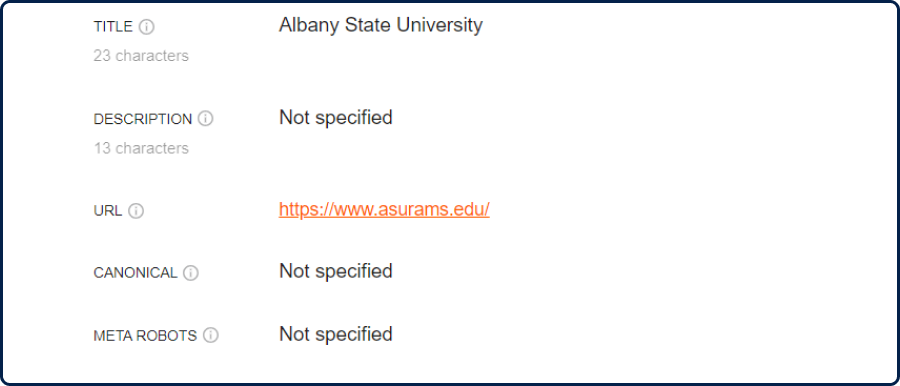
4. Optimize Content
Content optimization is at the heart of any effective SEO strategy for higher education institutions. Colleges and universities must create high-quality, relevant content that appeals to their identified target audience.
Utilize Best Keywords Especially Long-Tail
Incorporate the best keywords. Long-tail keywords like “best university for high school seniors in Massachusetts”, “affordable college programs and majors”, or “financial aid options for second-year university students” are specific and less competitive, making it easier to rank highly for them. With the rise of voice search, question phrases should not be neglected – they will likely be used by prospective applicants and student parents to discover colleges, universities, and degree programs. Use an aggregation tool such as Answer the Public, offering instant search insights on the most common questions related to your brand and degree programs.
Check for Duplicate Content
Duplicate content negatively affects SEO and higher education institutions must regularly identify and resolve and duplicate content issues. This ensures websites maintain high rankings across search engines.
Short Form Videos (VSEO)
As the popularity of short form videos has skyrocketed, Video SEO (VSEO) has become more important than ever. Short videos engage prospective and current students while improving SEO performance. Optimize videos with relevant keywords in titles, descriptions, and video descriptions.
5. Ensure a Healthy Backlink Profile
A strong backlink profile is crucial for higher education SEO success. Colleges, universities, and other institutions must focus on building high-quality backlinks coming from reputable sources. Guest blogging, partnership offers, and shareable content creation can all attract and generate backlink opportunities.
6. Build Individual, Targeted Pages
Create targeted, individual pages for different programs, departments, and services to significantly improve SEO results. The pages should be optimized with keywords and must provide clear, detailed information that prospective students are likely looking to find.
7. Focus on UX, User-Friendliness & ADA Compliance
User experience (UX) is a foundational pillar in SEO, and a user-friendly website that’s easy to navigate and provides a seamless experience to visitors will improve engagement and retention rates. Ensure ADA compliance to broaden the access to the website and enhance SEO results even further.
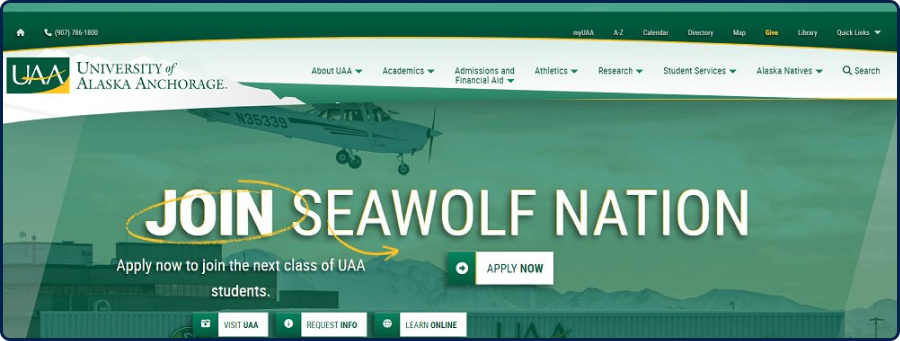
8. Maintaining and Growing SEO Knowledge
If department-specific web support or marketing teams exist, make sure they are well-versed in SEO, as they will be responsible for ensuring that the higher education institution’s websites function properly. Establish a good grounding in on-page SEO, digital ads, email marketing, social media, and website technologies, and stay updated on best practices in what is a constantly evolving field.
9. Measuring the Effectiveness of Your SEO Strategy
Track, analyze, and optimize your SEO efforts regularly. There are some brilliant tools available online that provide valuable insights into a website’s performance. Monitor metrics such as organic search traffic, bounce rates, time spent on site, and conversion rates to see the results of SEO strategies, and adjust accordingly.
Hiring a Higher Education SEO Agency is Key
Mastering SEO for higher education is tricky, but by following the strategies laid out, universities, colleges, and other institutions will see remarkable results over time. It’s important to remember that SEO is a marathon, not a sprint. While results can appear slow, it is normal for effective SEO strategies to bear fruit after a few months of correct implementation. Partnering with a specialized higher education SEO agency provides significant advantages, none more important than the expertise and resources these agencies have on hand. A good SEO agency for higher education will have demonstrable experience of delivering results for schools, colleges, or universities.
Contact inSegment today, Boston’s leading SEO agency for higher education, and see how your website can become an evergreen enrollment-producing machine.


